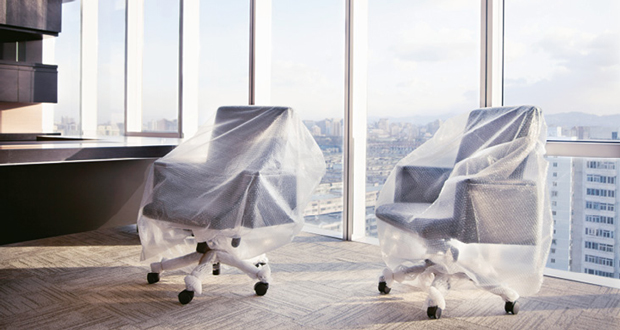 Arthur Duke, Managing Director, Live-in Guardians offers a practical solution to the challenge of protecting a vacant property
Arthur Duke, Managing Director, Live-in Guardians offers a practical solution to the challenge of protecting a vacant property
In the UK, 750,000 vacant non-residential properties are vandalised annually and a further 9,000 are seriously damaged by fires. With an increasing number of commercial building owners facing the impact of downsizing due to an increase in flexible and hybrid working, we’re seeing a growing number looking for vacant property protection. Property Guardianship offers an ideal solution for substantially reducing or sometimes even eliminating costs on large, unoccupied offices while owners explore their options.
Protecting a vacant building is a full-time job, with empty spaces presenting an attractive opportunity for criminals who may intend to burgle, asset strip, vandalise or squat in a vacant property. For most property owners, this is something they only truly realise when the worst happens.
By providing live-in security solutions, owners can tackle the issues of buildings falling into disrepair, criminal activity and the high costs associated with managing a vacant property, while simultaneously supporting the local community and keeping the building alive. This is particularly important when properties are expected to be vacant for a long period of time, either because owners are seeking planning permission or purchasing the property.
WHAT IS A PROPERTY GUARDIANSHIP SCHEME?
Property Guardianship is an initiative where a property Guardian company is appointed by the property owner to place strictly vetted Guardians (typically key workers and young professionals) to live in empty properties. This allows owners to reduce or even completely avoid security costs, while Guardians are able to benefit from massively reduced living costs, often saving more than 50 per cent compared with private rental.
As well as saving on vacant property protection costs, building owners and managers are able to protect themselves from the increasing issue of squatting, as a building can only legally be squatted if it is vacant and by having Guardians in-situ it is occupied.
Thousands of buildings in the UK get squatted in and subsequently damaged each year and with costs to remove squatters averaging around £20,000 (alongside a lengthy legal process), more and more owners are opting for prevention through protection. With traditional security options being financially out of reach for many owners (average security guard costs are around £130k pa), Guardianship offers a more flexible and cost-effective option.
HOW ARE GUARDIANS UTILISED?
Once an owner has authorised the use of Guardians, the first step is to ensure the property has all the required facilities to make it liveable and compliant. The cost of this work may be covered by the Guardianship company and would include transforming the property into a fully compliant living space and ensuring all fire regulations and health and safety measures are in place and being adhered to.
This involves having appropriately accredited maintenance teams check fire alarm systems, PAT test all electrical appliances and change the locks throughout the property to high-security master locks which include anti-pick and anti-theft technology. Owners should also be provided with all relevant certifications to ensure that the building is fully compliant with health and safety regulations.
The full onboarding process from taking on the property, through to fit out and filling the space with vetted Guardians is typically 5 -10 days. With Guardians signing a non-exclusive licence agreement, which can be terminated by giving them 28 days’ notice, owners can also enjoy the flexibility of having their property back in the state they left it (if not better) in under a month and with minimal fuss.
From there, the Guardians will secure the property and will act as eyes and ears for the owner, reporting any issues to the maintenance team and ensuring all plant and equipment within a property is running as efficiently and economically as possible.
We often find that the cost of shutting all services down, then getting them back up and running can be expensive and time-consuming. Guardians stop this from happening and are attentive to all aspects of the building, reporting any issues directly to the Guardian management team to be resolved.
THE FUTURE OF GUARDIANSHIP
As a form of security, Guardianship is a relatively modern initiative and since its inception, it has evolved greatly. With utility costs on the rise, a deepening housing crisis, squatting figures on the up and an ever-increasing list of compliance measures for owners to meet, property Guardianship is fast becoming one of the most powerful tools in a FM’s arsenal.





